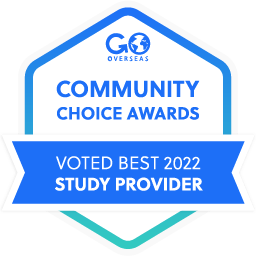
A Deeper Learning: Q&A with CYA Student Volunteer at Praksis Polyclinic
At CYA, our executive director of student affairs, Nadia Meliniotis, arranges volunteer, internship and childcare opportunities for student interested. Extracurricular activities range from teaching refugee children English to giving tour guides at a museum. This semester, one Spring ‘19 CYA student from the University of Southern California studying public health, spent time with Praksis Polyclinic learning, helping and engaging with refugees in need of free medical care. Read below the Q & A interview about this student’s experience.
Q: Tell me about what you do as a volunteer at the Praksis Polyclinic?
A: I volunteer in the pharmacy of the clinic, so I mostly go through bags of medications that have been donated by individuals or corporations/other pharmacies. I throw out any medication that has been expired or open (the box can be opened but the medicine must be sealed in the blister packet), and I sort all of the medicine we keep.
Q: What have you enjoyed the most about your time volunteering?
A: I have really enjoyed observing the day-to-day operations of the clinic and seeing first-hand what the process is like for refugees to be given medical care. I also really love all of the staff and doctors, and I have loved getting to know all of them.
Q: Why did you want to volunteer with Praksis Polyclinic?
A: As a pre-med student, I really wanted to gain experience working in a clinic abroad, and I was especially interested in volunteering in a clinic working for underserved populations, like Praksis.
Q: How does this experience benefit your studies at CYA or your home institution?
A: It has been extremely beneficial to experience a clinic like Praksis, in which all of the medical care, medicine, and social work is provided for free to the patients. I think it has given me a more well-rounded perception of health care and more exposure to the work that goes on in clinics.
Q: What kind of impact have you seen the polyclinic have on the people you help?
A: The clinic provides such important services to the people who go there and allows for them to feel safe, secure, and provided-for within such a large dynamic city in which they may face financial hardships, discrimination, or social difficulties.
Q: Can you tell me how this experience has impacted you?
A: I think the experience has given me insight into the hardships that people around the world are facing to find healthcare and the importance of running well-established and organized health clinics for them. It has also shown me how many people it takes to run a clinic and how vital all of the different parts are to making things run.
Q: Why do you think it’s important to volunteer during your time abroad?
A: When studying abroad, especially in a country at crossroads between different political and economic challenges like Greece, I think it is crucial to gain insight into the lives of real people in the country. While many students come here to study Ancient Greece, and while there is so much to learn about Ancient religion, philosophy, culture, and archaeology, I think students need to take the time to understand the current reality of Greece. Study abroad can often be more of a vacation/luxury experience, but I think you should go abroad to understand the good and the bad of a different country. I think you can learn way more volunteering than you can inside any classroom, and this experience has allowed me to understand some of the issues faced by refugees in Greece, which I don’t think I could understand just by hearing about.
The featured image is taken from Praksis’ facebook page and depicts numbers and letters spelling “άνθρωποι (anthropy)” which means humans in Greeks. Below the tagline says “We are not talking about numbers… We are talking about actions (πράξεις (praksis)).”






